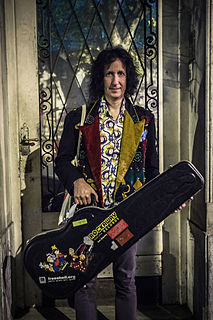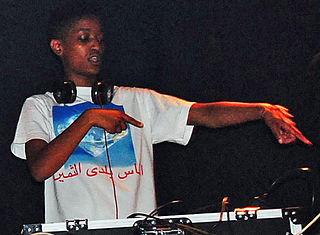A Quote by Holly Lisle
Every writer has something to say, but those writers whose works endure have dared to say something about the things that frighten them, confuse them, challenge them, and occasionally delight them.
Related Quotes
Emotionally, a person can become so negatively driven that they don't respect the privilege of being on this Earth without their mother and their father. They may say it doesn't bother them, but there is something in us about those who are a biological part of us and don't care. People in that situation stop hearing the other voices that love them, hold them, trust them and tells them how great they are. They're focused on that one person who isn't answering them.
So you have the challenge of just learning the lines, period, and not only learning them, but learning them to the extent that you assimilate them, so that you're not worried about what the next word is coming out of your mouth when it comes to doing a scene. And you're also in the trenches with the writers, just in the wonderful kind of back and forth of how is it best to say something, even if it involves four or five words. I love that kind of thing.
..few writers like other writers' works. The only time they like them is when they are dead or if they have been for a long time. Writers only like to sniff their own turds. I am one of those. I don't even like to talk to writers, look at them or worse, listen to them. And the worst is to drink with them, they slobber all over themselves, really look piteous, look like they are searching for the wing of the mother. I'd rather think about death than about other writers. Far more pleasant.
I've obviously used fans - I wouldn't say all my life, because we couldn't afford them when I was young, but from my 20s and onwards we've had to use fans. And I've always loathed them. Everything about them. The way you adjust them, getting them at the angle you want. Carrying them. Cleaning them. The danger of putting your finger in them.
I only try to talk to people about things I really do use in my shot. If I see something similar and something that will help them, then you try to come to them and say, 'I think I might have something for you. Think about it if you like it.' If they do, and they want to keep talking about it, then I will.
I think of the medium as a people-to-people medium, not cameraman-to-people, not direction-to-people, not writers-to-people, but people-to-peopleYou can only involve an audience with people. You can't involve them with gimmicks, with sunsets, with hand-held cameras, zoom shots, or anything else. They couldn't care less about those things. But you give them something to worry about, some person they can worry about, and care about, and you've got them, you've got them involved.






































